Istanbul carnage: Turkey’s Pakistan moment
Turkey and Pakistan share similar consequences as a result of an almost identical response to foreign sponsored chaos
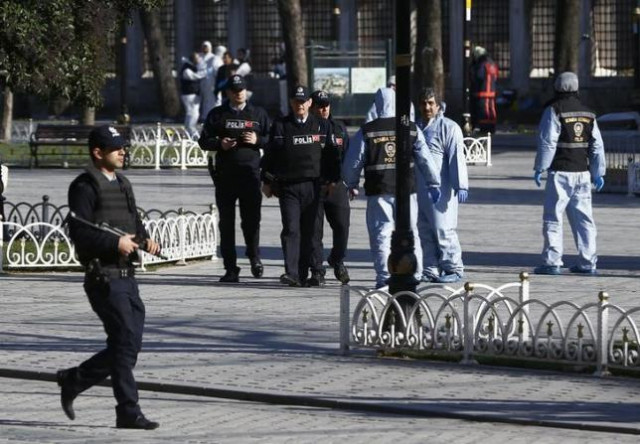
Police secure the area after an explosion near the Ottoman-era Sultanahmet mosque, known as the Blue mosque in Istanbul, Turkey January 12, 2016. PHOTO: REUTERS
Now Kremlin is confirming that three of its citizens have been arrested for suspected links with the Daesh terrorist. There have been sting operations in provinces near Iraqi and Syrian border regions where dozens have been arrested for questioning.
Car bomb attack in southeast Turkey kills 5, wounds 39 – governor’s office
Yet again, Turkey and Pakistan share similar consequences as a result of an almost identical response to foreign sponsored chaos in the neighbourhood. In the mid-1980s, pro-Soviet Afghans were assigned to kill innocent Pakistanis by smashing their heads while asleep with hammers. The elusive group was named Hathora group (hammer group). Like today’s Turkey, Pakistan also could not contain refugee influx to UN-administered camps. They freely travelled the country and settled as they pleased.
From 1984 to around 1988, such dastardly incidents were reported from Peshawar to Karachi, with a signature hammer used to kill the sleeping victim. Thus, for an average Pakistani, it is easy to relate to the victims of terrorism in Istanbul, Ankara and Diyarbakir.
Love thy neighbour
Ankara ran out of patience with Damascus after year-long persuasion for political reforms amid rising uprising following the ousting of Ben Ali in Tunisia and Hosni Mobarak in Egypt. It was in August 2010 when Turkey’s foreign minister Ahmed Davutoglu visited the Syrian capital to warn against use of military force against what were then large but peaceful street protests.
Assad said he was neither Ben Ali nor Hosni Mobarak. The Turkish foreign minister returned empty handed and an all-out nonviolent confrontation ensued between the two neighbours. Encouraged by his allies, namely Russia, Iran and militants in Lebanon, the Syrian regime resorted to continue excessive use of force against protesting citizens, triggering en masse desertions from the military and creation of armed Syrian units, later called the Free Syrian Army.
Afghanistan ahead of Soviet invasion in 1977 was amidst similar political upheaval. The situation worsened after the murder of a US ambassador and advent of the Soviet boots on the ground.
Taking a toll on civilians
Pakistan adopted a humanitarian posture by setting up refugee camps for the fleeing Afghans. Initial response of Turkey was quite the same. As the security situation continued to deteriorate, the refugee inflow paralysed the state machinery. Like Pakistan in the ’80s and the ’90s, today’s Turkey is home to over three million Syrian refugees. In the garb of exiles, terrorists infiltrated then and now. Pakistan paid the price for opposing Soviet aggressive designs at the hand of the Hathora group then, and later for supporting the Taliban monster, created between1995 and1996 to sideline narcissist Afghan resistance leaders.
Istanbul suicide blast kills 10 tourists
Notably, Germans were particularly targeted during Tuesday’s Istanbul blast. Daesh attacked them in retaliation to Angela Merkel’s generous support for refugees. The terrorists sent multiple ghastly messages with one clandestine act.
The Russian connection with Daesh comes as no surprise for observers. Since September, Kremlin has hardly hit Islamic State occupied areas in Syria while it has taken its toll on anti-Assad groups as well as civilians who remain stranded due to intense fighting or lack of resources. Russia is widely seen as a friend of Daesh, an allegation Moscow denies. Killings at the hand of the Hathora group were denied the same way.
Limits to diplomacy
Just like Pakistan’s Ziaul Haq, Turkey’s President Tayyip Erdogan is blamed by opposition leaders for going too far in support of a neighbouring nation or a tyrannical regime in a bordering country. In Pakistan’s case, landlocked Afghanistan used to mostly be politically unstable at home and hostile towards its eastern neighbour. Syria was no different at all.
In Hama, Hafez al-Assad killed over 20,000 citizens for protesting against his rule in the 1980s. There were several near-war situations between Turkey and Syria, including one over the water-sharing dispute. Ziaul Haq used Afghanistan’s situation to overcome his legitimacy deficit. Erdogan, on the other hand, has shielded behind Syrian unrest to portray himself as a saviour of Syrians and Europeans alike.
Syrian bomber suspected as blast kills 10 in Istanbul tourist hub: Erdogan
Some circles believe that by adopting a straightforward approach to Syria’s Assad in 2011, Ankara disarmed itself of diplomatic initiative the country perfected over the decades. After Assad’s use of excessive armed force and later repeated use of chemical weapons, there was little option for Turkey, Jordan and Lebanon but to save fleeing civilians. Similarly, Pakistan and Iran had no other option when Russia pounded Afghan cities and villages from land and air.
Naveed Ahmad is a Pakistani investigative journalist and academic with extensive reporting experience in the Middle East and North Africa. He is based in Doha and Istanbul. He tweets @naveed360

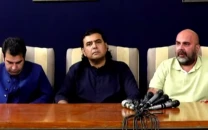
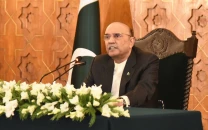
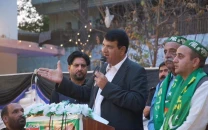
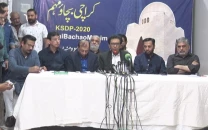

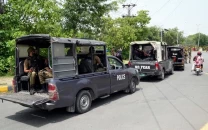












COMMENTS
Comments are moderated and generally will be posted if they are on-topic and not abusive.
For more information, please see our Comments FAQ